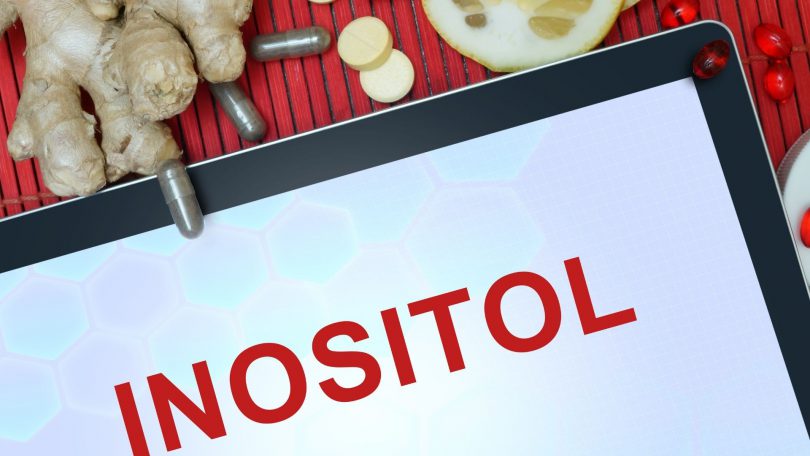Novel research suggests that women suffering from polycystic ovaraian syndrome (PCOS) may benefit from the micronutrient inositol, which is involved in insulin signaling. It was only by the end of the 20th century, that there were first hints suggesting that impaired signal transduction at the insulin receptor may contribute to PCOS.
Let’s use a simple picture to illustrate this: When we consume carbohydrates, they are digested to single sugars and distributed throughout the body with our blood. The body cells that need the sugar can then “grab” it, bring it into their cytoplasm, and use it for energy production. This process however, requires a signal, comparable to somebody ringing a door bell.
In the body, it is the blood sugar hormone insulin that presses the button of the bell. It is released by pancreatic cells, when there is a lot of sugar in the blood.
However, inside the cells, the presence of insulin is only detected, when a second signal (the sound of the door bell) is given. In our body cells, a chemical second signal, a so-called second messenger, is used. In insulin’s case, it is the inositols fulfilling this role.
Only when they are released inside the cell, the cell actually realizes that there is someone at the “door”. Now it can open the door, letting in blood sugar.
In PCOS, it seems, the door bell is often defective. Doctors refer to this as insulin resistance. In order to still achieve a reaction, the body tries to press the door bell over and over again (like many people in real live would do as well) by producing more and more insulin.
There are different approaches to counteracting this problem. In addition to merely treating symptoms, the underlying cause for the problem can be tackled. Firstly, a suitable lifestyle and diet counteract a build-up of big blood sugar amounts in the first place. In addition to this, the “door bell” from our example can be made audible again, by providing enough intracellular second messengers. Supplementing inositols can help to reduce insulin resistance considerably.
The second messenger inositol is involved in insulin metabolism in two so-called isoforms: myo-inositol (MI) and D-chiro-inositol (DCI). Both belong to the molecular family of sugars, however differ in the position of their OH-groups. They are natural components of many plant and animal food sources and are also produced within our body. Their role in insulin metabolism varies slightly. In liver, myo-inositol triggers sugar uptake into the cells and DCI promotes glycogen-synthesis. In ovary, MI again mainly ensures glucose uptake, but is also involved in FSH action. DCI on the other hand, triggers insulin-dependent synthesis of androgens. The main problem in PCOS seems to be an imbalance between the two isomers, which normally can be converted into each other (Nestler und Unfer, 2015).
While initial studies showed very promising results for supplementation of MI or DCI (free from any side effects, MI was even superior to metformin, according to Raffone and colleagues (2010)). For fertility patients, the current research advocates use of both isoforms with a focus on MI (Nestler and Unfer, 2015):
Colazingari S et al, 2013:
”The data clearly showed that only the combined therapy was able to improve oocyte and embryo quality, as well as pregnancy rates, in PCOS women undergoing IVF-ET.”
Nestler and Unfer, 2015:
“…the focal point is the administration of both MI and DCI in a proper ratio for treating PCOS.“
A combination of the two inositols topped off with other carefully selected micronutrients is available in a dietetic food for special medical purposes, that is tailored to meet the specific requirements of women with PCOS: Fertilovit F PCOS.








Hallo,
interessante und informative Beiträge hier, super. Habe längere Zeit als stiller Gast nur mitgelesen und mich jetzt mal angemeldet.
Ich würde mich freuen, wenn ihr bei Gelegenheit auch einmal auf meinem Blog zum Thema Textilreinigung vorbeischauen würdet.
Alles Liebe
Herbert